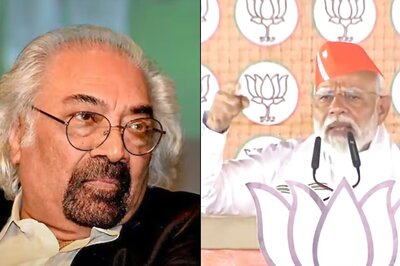
views
KOCHI: Sleep is an irresistible urge but when it is excessive during the day accompanied by sleep attacks while cooking, eating, cycling or during other activities, it calls for concern and needs to be checked. For, it may be narcolepsy, said Dr Emmanuel Mignot, director, Centre for Sleep Sciences, Stanford University, US, at a press conference at Amrita Institute of Medical Sciences on Tuesday. Mignot discovered that the disease was caused when the hypocretin cells in the brain are killed. Narcolepsy is an autoimmune disease characterised by long and frequent day-time sleep, nightmares, cataplexy (sudden loss of muscle tone during strong outburst of emotion) and weight gain. This chronic neurological sleep disorder affects one in 2000 persons, mainly aged between 10 and 15, he said. About 50 adults and seven children are undergoing treatment at the sleep lab at the hospital, said Dr R Suresh Kumar and Dr Sheela Nampoothiri. Instead of going to slow wave sleep, they go into rapid eye movement (REM) sleep immediately and have disturbing dreams, said Mignot. Narcolepsy is triggered by infections such as H1N1 (the virus will act against hypocretin), trauma and genetically, he said. In Scandinavia, Norway and Finland it is also caused by vaccination. Narcolepsy can be diagnosed by two tests- polysomnography and mean sleep latency test (MSLT) in which the spinal fluid is analysed for hypocretin. It costs about `7,000. At present MSLT facilities are not available in India and the data is sent to Mignot’s state-of-the-art lab for analysis.Eighty per cent of patients can be treated by reducing catalepsy, through stimulants and sleep decreasing medicine, the dosage of which differs from individual to individual depending on the degree of the disease. Unfortunately, the medicine, sodium oxibate, is not available in India. The treatment is life-long, said Mignot who researched for 10 years to make his discovery.He also gave a talk for neurologists at the IMA House on Tuesday. He will give a talk for pediatricians on Wednesday.



















Comments
0 comment